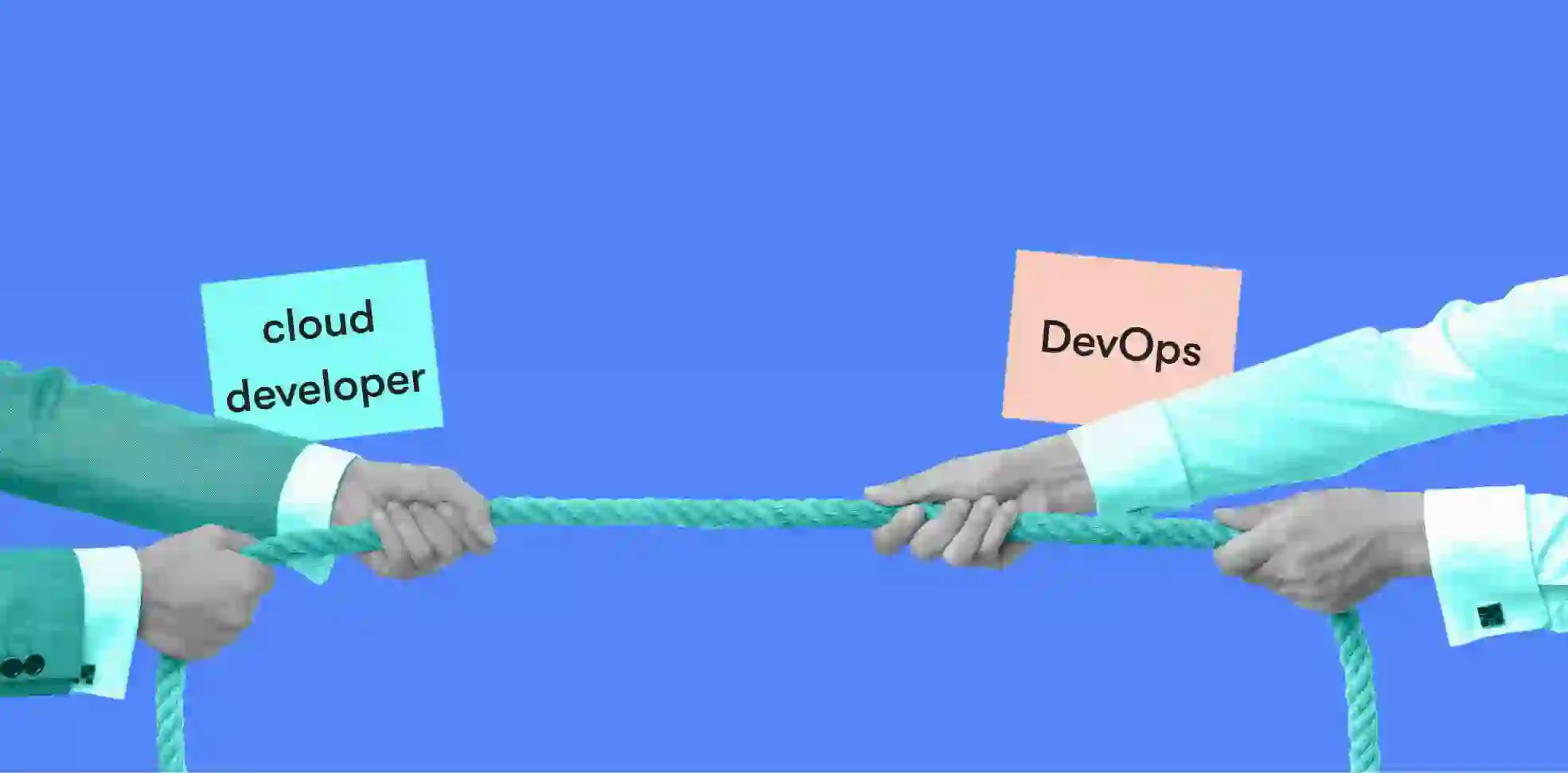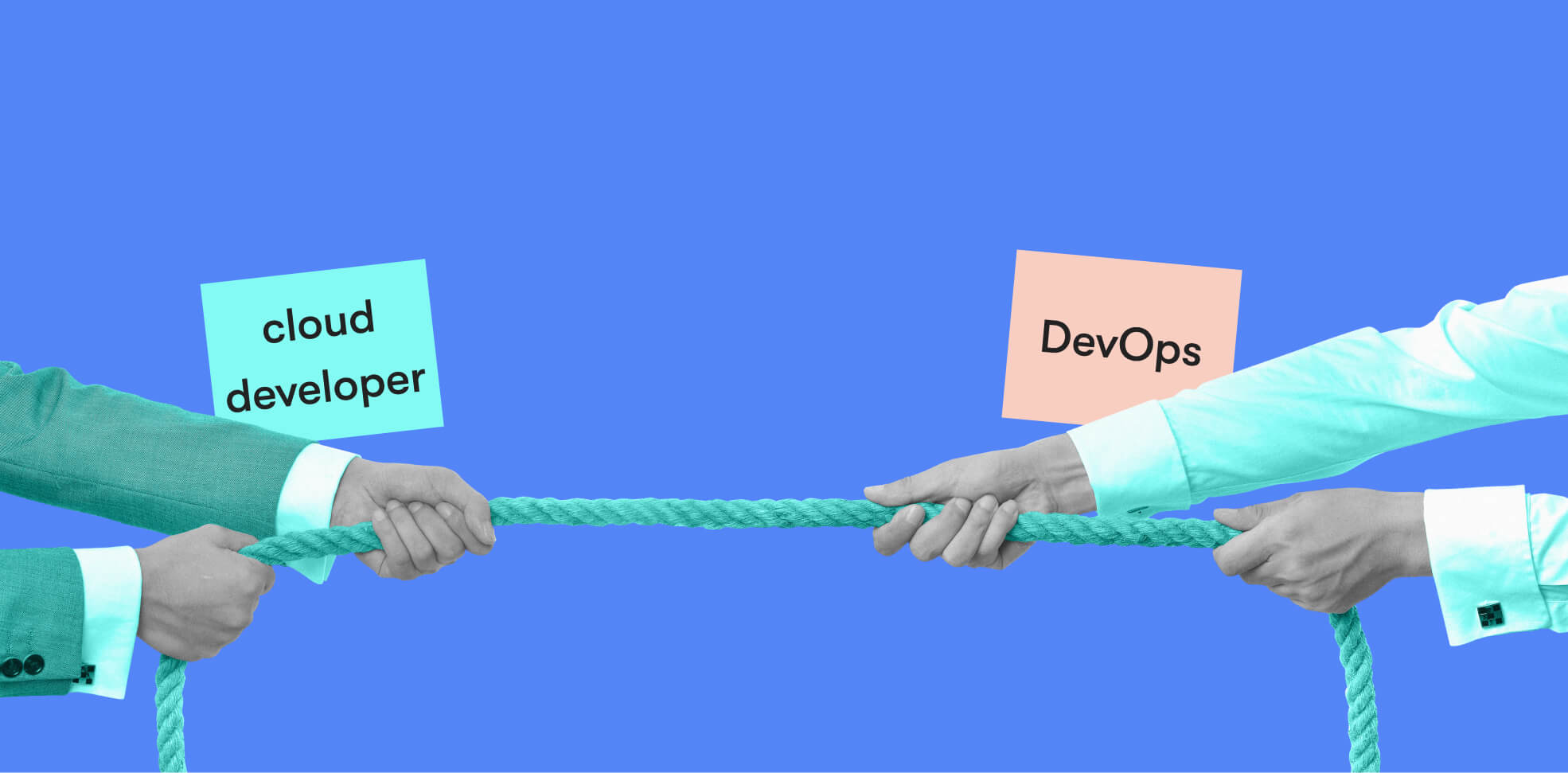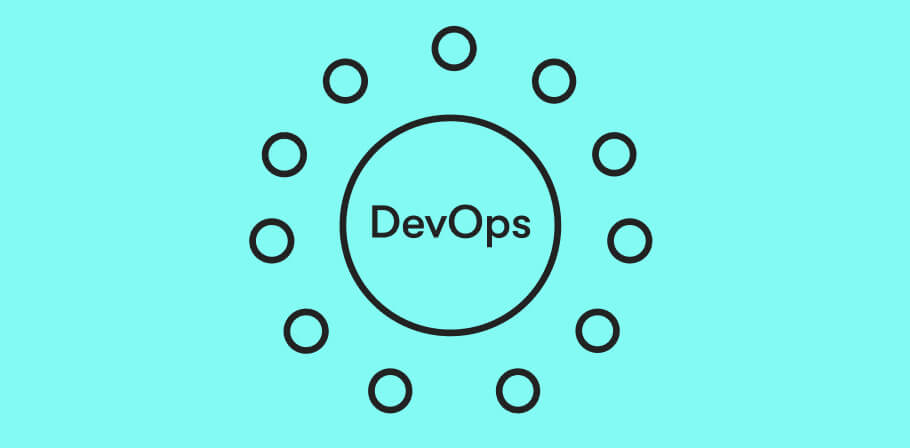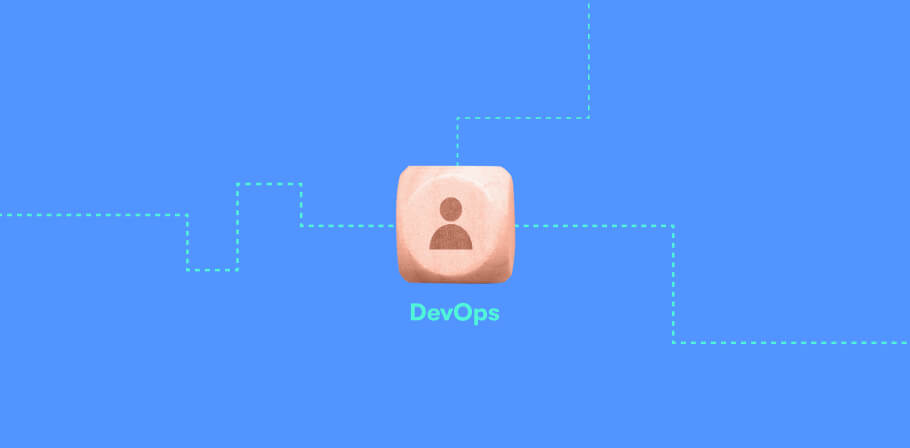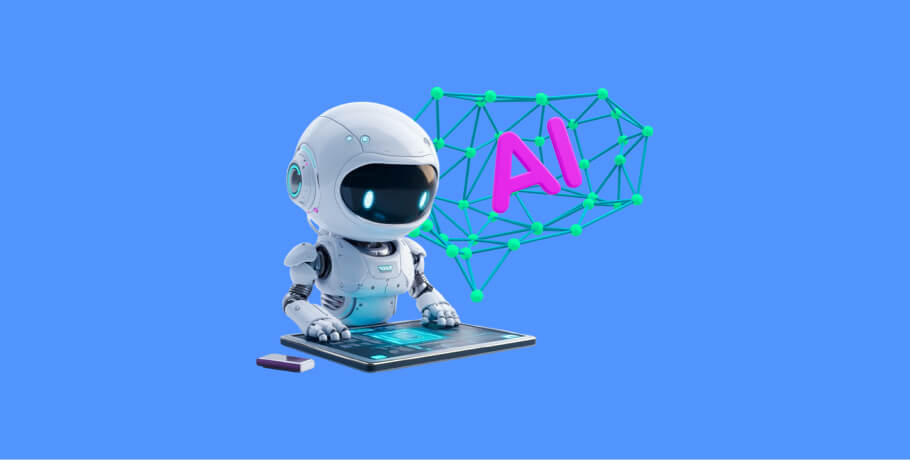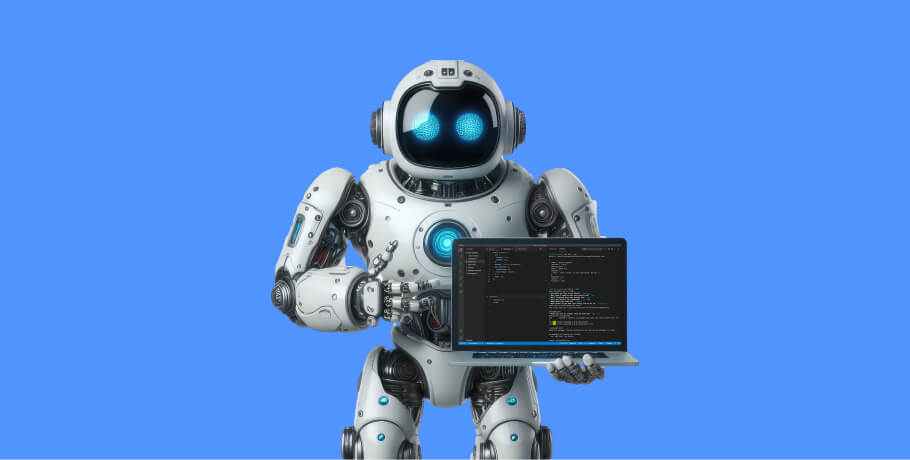IT is rightfully considered one of the most flexible and dynamically developing spheres of activity, where new technologies, tools, and professions regularly appear. For example, DevOps engineers have become wildly popular in recent years. DevOps is a specialist in implementing the methodology of the same name in the software development process.
According to Allied Market Research, the global DevOps market size was valued at $6.78 billion in 2020, and is projected to reach $57.9 billion by 2030, registering a CAGR of 24.2% from 2021 to 2030.
Cloud engineers are also in huge demand as businesses are convinced that cloud computing is the future, allowing infinite scalability without investing in their own infrastructure. Do you need both of these roles in your team to succeed? In this article, we'll explore which one will fit your tasks better, and tell you how to hire them quickly and efficiently.
What is the Impact of a Cloud Engineer?
To better understand the difference between DevOps and cloud engineers, let’s start with the latter. The job of a cloud engineer is at the intersection of development, technical support, and system administration. The area of responsibility of such specialists is cloud technology, cloud infrastructure, and ensuring their uninterrupted operation. The tasks of this expert can range from software support to developing a solution or migrating an off-the-shelf solution to the cloud.
These experts can typically implement software, write scripts, manage cloud infrastructures, and make disaster recovery plans. The engineer also ensures and monitors the service's functionality and helps develop the infrastructure. Engineers should also pay a lot of attention to the project development team as their responsibilities are closely related to the platform and clientele, so many ideas for fixes and improvements to the service come from them.
What is the Impact of a DevOps Engineer?
DevOps engineer is a specialist in the development and operations methodology, describing the approach to improve software development and system administration processes.
For example, most major companies have a product engineering department, where they create the product, and an operations department, with employees responsible for ensuring the product works correctly. These two parties have always had different goals and priorities. Developers aim to create a product and implement it as quickly as possible. The operations department is interested in minimizing the number of changes because each of them is associated with the risk of failure and errors. As a result of the lack of synchronization, the company incurs additional costs, and the operations department's workload increases.
The solution to this problem is the DevOps culture, and its carrier is the DevOps engineer, who is familiar with both development and hands-on IT implementation. To optimize and automate the development of software applications, DevOps engineers work with managers, developers, and QA testers, bringing teams and their competencies together so that they continuously interact, saving company time and resources.
CONSULT EPAM STARTUPS & SMBS TO CHOOSE BETWEEN DEVOPS AND CLOUD DEVELOPERS
It is always a challenge to decide on the specialists your startup might need. Give us the details of your project, and we will gladly consult you on the experts your team might need.
Cloud Engineer vs. DevOps Engineer: Job Responsibilities
Let’s take a closer look at the technical responsibilities of cloud vs. DevOps engineers to understand the difference better.
Cloud Developer Tasks
What kind of tasks does a cloud engineer perform? Let's take a look:
- Carry out the planning, operation, and technical support of cloud platforms;
- Perform internal and external integration service work;
- Promptly resolve incidents and solve problems on the administrative side of the system;
- Advise clients on the services provided, the technical characteristics of the services provided and the specifics of their use;
- Develop and optimize cloud applications;
- Migrate local applications to the cloud;
- Provide process automation and cost reduction through cloud services;
- Identify performance bottlenecks in applications;
- Maintain efficient access statistics for cloud services.
DevOps Engineer Tasks
In turn, the main objectives of DevOps are to achieve the following:
- Reduce the time spent on software development;
- Increase the security of development;
- Minimize the risk of bugs emerging in new releases;
- Coordinate work and automate software development and release processes;
- Plan, design, and create scripts and development tools;
- Automate;
- Participate in application and infrastructure development;
Implement monitoring strategies to control the performance of the product after release.
LOOKING FOR A TEAM OF OUTSTANDING DEVELOPERS TO TURN YOUR FINTECH CONCEPT INTO A COMMERCIALLY SUCCESSFUL PRODUCT?
EPAM Startups & SMBs was created with startups in mind. Leverage the experience of enterprise-grade engineers who worked for leading financial institutions to develop your own breakthrough product.
Critical Skills Required for DevOps and Cloud Engineers to Maximize Their Value for Your Project
Let’s continue our cloud engineer vs. DevOps engineer comparison with a list of crucial skills required to bring maximum value to your business.
Cloud Engineer
The Cloud Engineer must:
- Have technical expertise in cloud solutions;
- Be able to operate automation tools;
- Have a thorough knowledge of Linux;
- Differentiate between TCP, IP, and TCP/IP;
- Know how to work with HTTP(S) and DNS;
- Understand Nginx (used in every web service);
- Have proficiency in video streaming technologies;
- Have experience with Chef, Puppet, Salt, and Ansible configuration control systems;
- Have knowledge of Python at a sufficient level for data processing.
DevOps
The key skills required for a DevOps engineer are:
- Knowledge of the basics of operating system administration;
- Communication skills and the ability to explain the operation of complex systems.
- Understanding of database systems such as SQL and NoSQL;
- Experience with tools such as Git, Terraform, Kubernetes, Prometheus, Ansible, and Docker;
- Knowledge of programming languages such as Bash, Python, Golang, and others;
- Stress tolerance;
- Technical English skills;
- Presentation skills.
CHECK ALL THE EXPERT SKILL BOXES WITH EPAM STARTUPS & SMBS
A successful enterprise requires the best experts. EPAM Startups & SMBs will help you choose a talented engineer that fits all your criteria.
Pros and Cons of DevOps vs. Cloud Engineer for Product Flexibility
There are pros and cons to both DevOps and cloud engineering. Here are a few key advantages and disadvantages of each approach:
DevOps
Development Operations practices have both strengths and weaknesses. And they need to be weighed carefully to determine if they are right for your business. Let's highlight the advantages of DevOps:
- Convenience and ease of tracking events, management processes, and automatic reporting;
- Improved quality of the final product;
- Minimized time to market for new software;
- Total control over the working environment;
- High application efficiency and performance;
- Possibility to extend DevOps approaches not only to software development but also to any other business processes;
- Updates are released faster and more frequently;
- Releases become more reliable and fewer bugs appear;
- Development costs are reduced by up to 20%;
- The team can fix bugs that already exist faster.
But along with this, Development Operations have their disadvantages.
- The methodology itself is challenging to implement. It requires retraining the whole team to work in a new way, and in conditions of constant sprints, while employees may not be interested in this.
- For the DevOps methodology to work, it needs to be implemented appropriately, and work processes need to be set up.
Cloud Engineering
There are advantages and disadvantages to introducing a cloud engineer into a team. Let's take a look at them.
- Many companies benefit by reducing costs and allowing them to focus on their core business;
- Cloud services allow near-instant access to data from anywhere in the world, ensuring a significant boost in speed of operations;
- Ensure rapid deployment and smooth operation of cloud services;
- Scaling the number of cloud engineers is easier than the number of DevOps engineers.
The cons of hiring a cloud engineer are as follows:
- You need someone with comprehensive knowledge of these technologies. Finding such an expert can take time if you don't know where to look.
- The final cost of cloud engineering may be more expensive than DevOps. Cloud computing platforms typically charge by the hour or the number of resources used.
NEED HELP TO LIFT YOUR FINTECH PRODUCT OFF THE GROUND?
EPAM Startups & SMBs is here to help. Leverage our multi-year experience in fintech product development, our innate flexibility, and competitive pricing to get from A to MVP in controlled flight mode.
DevOps Engineer vs. Cloud Engineer: Who is Suitable for Startups?
The main advantage of DevOps services is the ability to automate the entire software creation process. Namely, planning, development, assembly, testing, release, and delivery of the product to users, as well as its further support and maintenance.
Timely implementation and proficient application of the DevOps concept help maintain continuity in many vital processes, including collaborative business planning, deployment, release, monitoring, etc. This can positively impact startup creation, and many have been adopting the DevOps methodology from day one.
In turn, the area of responsibility of the cloud engineer is more limited to cloud platforms and everything related to them. They deal with the platform's operation, ensure fault tolerance, and help develop infrastructure. For example, if the whole country has switched to a remote service and started watching more videos, the cloud engineer's task is to scale the service in time so that the platform works without failures. Moreover, this specialist can create, refine, and more often integrate cloud solutions into the business. If your startup uses this technology, this specialist is indispensable.
To summarize. If your startup needs speed and flexibility, DevOps is your choice. But if you intend to make the most of cloud technology, hire a respective engineer. If you have both specialists in your team and combine the advantages of DevOps methodology with cloud computing, then say goodbye to your competitors because you won't hear any good news from them anytime soon.
Advice on Choosing between Cloud and DevOps Engineer from EPAM Startups & SMBs
So, if your priority is to increase the speed and agility of your organization, hiring DevOps is your best option. A DevOps engineer will keep your production process running smoothly and significantly reduce time to market.
Cloud engineering may be your best option for scalability and flexibility. Having a cloud engineer with a high level of expertise by your side will make any cloud service not just a tool, but a competitive advantage.
Whatever the case may be, contact EPAM Startups & SMBs and our experts will help you find a cloud engineer or a DevOps engineer according to your business needs. We have a talent pool of about 55,000 developers available round the clock. We’ll assemble a team at your request or strengthen your team with individual specialists in no time. Our clients note that we are 2–3 times faster than hiring agencies. Just contact us and we'll determine who fits your business needs the best together.
Conclusion
Today’s businesses strive not only for revenue but for saving costs. People with knowledge of the DevOps concept working in the paradigm of seamless delivery and Docker containerization can change the very course of business. If implemented correctly, this approach can significantly reduce costs and build a truly productive workflow.
In turn, cloud engineers build, optimize, integrate, and ensure the smooth operation of these platforms. Using the latter also significantly reduces infrastructure costs and makes scaling problems a thing of the past. It's up to you to decide who is the winner of the cloud developer vs. DevOps battle and which one is right for your business. We just want to hint that you can always contact us or use EPAM Startups & SMBs to find the right specialist in the blink of an eye.
FAQ

Expert digital communicator and editor providing insights and research-based guides for technology buyers globally.
Expert digital communicator and editor providing insights and research-based guides for technology buyers globally.
Explore our Editorial Policy to learn more about our standards for content creation.
read more